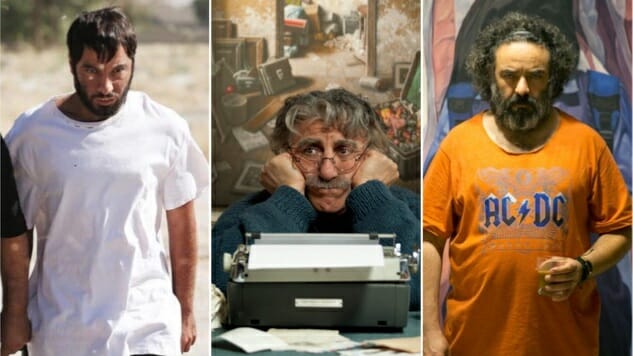Dig Into These 5 Movies from the 1st New York Iranian Film Festival

With names like Abbas Kierostami, Jafar Panahi, Asghar Farhadi commonplace on the lips of film buffs, contemporary Iranian cinema has seen its share of groundbreaking works. They not only advance the medium in uniquely technical and narrative terms, but give alternative and eye-opening glimpses into the culture and politics of a country and people commonly stereotyped in western mass media through an aggravatingly narrow scope. The draconian religious and political strangleholds the country’s autocratic rulers place on their artists’ freedom to openly depict the various injustices that surround them on a daily basis is an upsetting state of affairs indeed. But the Iranian filmmakers’ ingenuity and creativity in finding ways around such restrictions, turning them into narrative and thematic devices instead of avoiding them—Jafar Panahi’s meta-satires This is Not a Film and Taxi Tehran, for example—has led to work both culturally specific and universally relatable.
In order to bring lesser-known examples of recent Iranian cinema to American film lovers, Iranian film studio Daricheh Cinema recently hosted the 1st New York Iranian Film Festival. Held between January 10th and 15th at NYC’s IFC Center, the festival connected 10 features with New York film buffs. There were some heavy hitters and classic works from renowned Iranian directors, such as Panahi’s recent Cannes hit, 3 Faces, and a retrospective screening of the 1979 Iranian New Wave classic, Tall Shadows of the Wind. At the end of the festival, Best Film was given to Sheeple, while Hendi & Hormoz went home with the Special Jury Award. Here is a look at five of the films featured at the 1st New York Iranian Film Festival.
Pig (2018)

Robert Altman’s The Player gets a gruesome and hilariously absurdist horror-comedy treatment in the form of writer-director Mani Haghighi’s film industry satire/serial killer hybrid of a twisted morality tale. A vicious killer is decapitating the most prominent Iranian film directors, leaving only their heads as evidence, and the number one grievance on narcissistic, pompous and abrasive director Hasan Kasmai’s (Hasan Majuni) mind is why he still is not the killer’s target. Is he not an important enough name in Iranian cinema to warrant his head being chopped off? First and foremost, Pig shows that Hollywood does not have a monopoly on a film industry that’s full of insecure, toxically self-serving, pretentious globs of unfiltered neuroses. The murder mystery is used as a clever back door into exposing Hasan and his entourage of stalkers, career fuck-ups, and all around creeps—“artists” who pretend to tell the stories of the common man, but are too enamored with themselves to care about anyone else—as monumental frauds. Just like The Player, Pig is a hell of a lot more interesting when it’s a full-on satire and steers away from actually deconstructing the murder plot. But even when that plot takes over a bit too much during the third act, Haghighi keeps things lively with a tongue-in-cheek surrealist touch. I didn’t know I needed a Farsi cover of AC/DC’s “Hell’s Bells” played on a neon tennis racket, but now I can’t imagine my life without it. Pig is perfect fodder for those who have an image of Iranian cinema as nothing more than melodramatic art-house borefests.
-

-

-

-

-

-

-

-

-

-

-

-

-

-

-

-

-

-

-

-

-

-

-

-

-

-

-

-

-

-

-

-

-

-

-

-

-

-

-

-












































